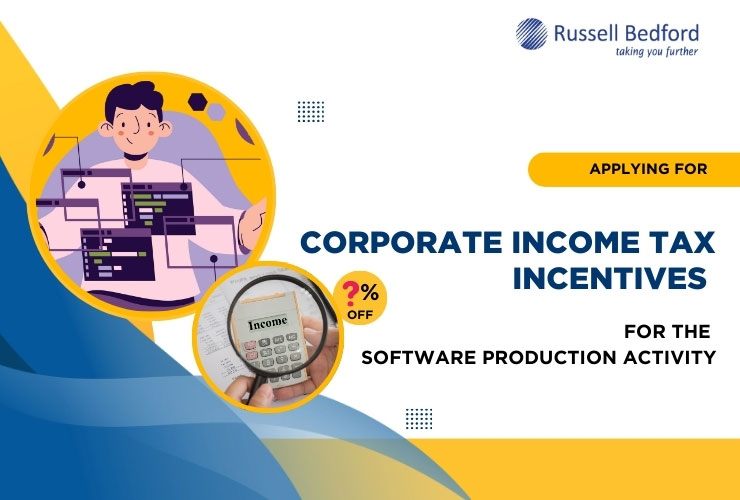To promote technological development and encourage high value-added industries, the Vietnamese government has implemented corporate income tax (CIT) incentives for businesses engaged in software production. However, not all companies involved with software automatically qualify for these incentives. A key prerequisite is the determination of whether a business engages in software production according to regulations, as this serves as the basis for approval and application of the incentives by the authorities. In this article, KTC will provide insights into CIT incentive policies, applicable conditions, and key considerations for businesses seeking qualification.
1. CIT Incentives for Software Production Activity
Businesses engaged in software production are eligible for the following corporate income tax incentives:
- Preferential tax rate: A 10% CIT rate for 15 years from the first year of revenue generation.
- Tax exemption and reduction:
Exemption from CIT for the first 4 years and 50% tax reduction for the following 9 years. The tax exemption and reduction period begin from the first year the business generates taxable income. If no taxable income is generated in the first three years from the first revenue-generating year, the tax exemption and reduction period start from the fourth year.
2. Conditions for CIT Incentives for Software Production Businesses
CIT incentives apply to new investment projects that meet the following conditions:
- The project must have been granted an Investment Registration Certificate (IRC) from 01 January 2014, and have generated revenue after obtaining the certificate.
- For domestic investment projects associated with the establishment of an enterprise, the investment capital must be under VND 15 billion, and the project must not be listed under conditional investment sectors. The enterprises must have obtained its Enterprise Registration Certificate (ERC) after 01 January 2014.
- Independent investment projects separate from ongoing projects (even if the investment capital is below VND 15 billion and not in a conditional investment sector) must have obtained an Investment Registration Certificate from January 1, 2014 to qualify for CIT incentives.
New investment projects eligible for CIT incentives must be approved by competent state authorities, granted an Investment License or Investment Registration Certificate, or permitted under investment laws.
3. Procedures for CIT Incentive Application
Software production businesses must self-assess their eligibility for tax incentives, preferential tax rates, tax exemption and reduction periods, and loss deduction before filing and finalizing tax declarations with the tax authorities.
When applying for project licensing and CIT incentives, investors must provide sufficient documentation to prove their eligibility for approval by relevant authorities, such as the Ministry of Information and Communications (previously, now merged into the Ministry of Science and Technology). Required considerations include:
- Determining whether the business activity qualifies as software production.
- Ensuring that the software product falls under the legally recognized software categories.
- Compliance with the legally mandated software production process.
4. Key Stages in the Software Production Process
- Requirement Identification: This stage includes various activities such as defining or refining product development ideas, describing software features, analyzing business requirements, consulting on process adjustments, and finalizing product specifications.
- Analysis & Design: This involves defining functional and non-functional requirements, establishing development problems, selecting optimization techniques, analysis of software correctness and testability, analysis of the impact of software requirements on the operating environment, modeling data and functions, designing software architecture, modules, security design, information security for software and user experience interfaces.
- Programming & Coding: This includes writing software programs, coding individual modules, customizing and fine-tuning the software, and integrating different software components and systems.
5. Identifying Software Production Activities that Meet the Process Criteria
- A company’s software production activities must include at least one of the following key stages:
- Requirement Identification
- Analysis & Design
- Compliance with the software production process must be demonstrated through supporting documents corresponding to the activities carried out by the company.
Although CIT incentive policies and procedures are clearly outlined in the Law on investment, the Corporate Income Tax Law, and various decrees and circulars (such as Circular 13/2020/TT-BTTTT and Circular 20/2021/TT-BTTTT), the actual application process remains complex and requires multiple approvals.
For further consultation and guidance, businesses and investors may contact Russell Bedford KTC’s advisory team through the following link:


















